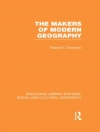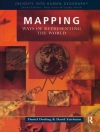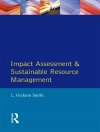The Himalaya is the new folded mountain system – the tallest and the youngest in the world. It has a rich diversity – natural and cultural, and diversity in all walks of life. Most of its uniqueness is unknown because of its remoteness. Even, the native people are not aware of them. This book aims to describe the uniqueness of the Central Himalaya in terms of its natural and cultural diversity in detail. Supported by original figures and primary data, this book is empirically tested. It is mainly based on observation and participation and the use of a qualitative approach. Although lots of work has been carried out on the various aspects of the Himalayan region yet, a detailed description of the natural and cultural diversity is yet to be done. This book steps forward to elaborate on some of the unique natural and cultural features of the Central Himalaya, which are worthy to be known about. It contains a total of 10 chapters. Four chapters are devoted to natural diversity and fourchapters comprise cultural diversity. Besides, the introduction and conclusions are the first and the last chapters of the book, respectively. The book is the first of its kind and will be useful to all stakeholders – students of all standards, research scholars, academicians, policymakers, native people, tourists, and the general public.
Зміст
Chapter 1: Introduction.- Part 1: Natural Diversity. Chapter 2: Diversity in Landforms.- Chapter 3: Diversity in Climate.- Chapter 4: Biodiversity.- Chapter 5: Agro-biodiversity.- Part 2: Cultural Diversity. Chapter 6: Diversity in Social Systems.- Chapter 7: Diversity in Culture and Customs.- Chapter 8: Diversity in Fairs and Festivals.- Chapter 9: Diversity in all Walks of Life.- Chapter 10: Conclusions.
Про автора
Vishwambhar Prasad Sati (b. 1966), D.Litt. and Ph.D., a Senior Professor of Geography and Resource Management, is currently working at the Mizoram University (A Central University), Aizawl, India. With a teaching career of about three decades, he has served in several higher education institutions within and outside India, some of them being ‘Eritrea Institute of Technology’, Asmara, Eritrea (NE Africa), ‘Institute of Mountain Hazards and Environment’, Chengdu, China, ‘Madhya Pradesh Higher Education’, and ‘HNB Garhwal University’, Srinagar Garhwal. In the same field, he has deeply been involved in research, and has worked as a Visiting Professor and Visiting Scholar in the world’s various renowned research and academic institutions, including ‘The World Academy of Sciences’, ‘Chinese Academy of Sciences’, ‘Indian National Science Academy’, ‘Indian Council of Social Science Research’, and ‘Indian Institute of Advanced Studies’. Currently, he is a Senior Global Fellow of the Grassroots Institute, Canada. Besides, he has travelled widely – 40 countries and all over India. He has impactful expertise in the fields of Natural Resource Management, Environment-Development Interface, Climate Change, Rural Livelihoods, Disaster-Related issues, and Culture of the Himalayan region. He has developed several models and action plans for environmental conservation and economic development of the fragile Himalayan ecosystems/landscapes. More than a dozen of national individual projects and projects with international collaboration have been conducted by him. With more than 180 research papers and articles, and about three dozen books published, his academic contribution is well-documented at national and international levels.












